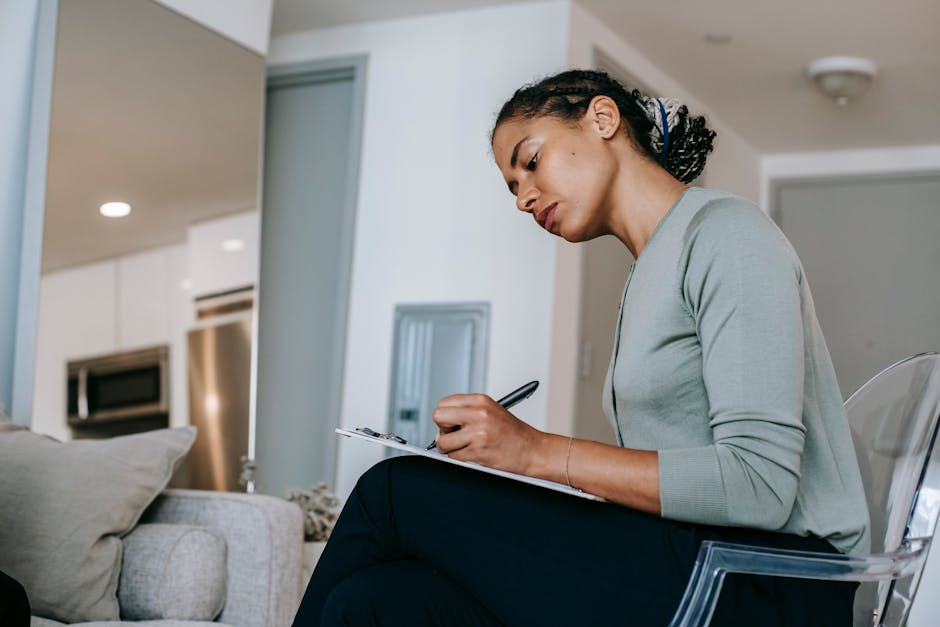Handling Tough Interview Questions With Confidence
Facing tough interview questions can be a daunting experience for many job seekers. The anxiety of not knowing what to expect and the pressure to make a good impression can be overwhelming. However, with the right preparation and mindset, you can handle these challenging questions with confidence and poise.

Understanding the types of questions that may be asked, practicing your responses, and learning effective strategies are key steps in navigating this critical part of the job search process.
Understanding Common Tough Interview Questions
Tough interview questions often fall into several categories, including behavioral, situational, technical, and competency-based queries. Behavioral questions focus on past experiences to predict future behavior, while situational questions present hypothetical scenarios to assess problem-solving skills. Technical questions test your knowledge in a specific area, and competency-based questions evaluate your skills and abilities relevant to the job.
Some examples of tough interview questions include:
- “Tell me about a time you faced a significant challenge at work and how you handled it.”
- “How do you prioritize tasks when you have multiple deadlines?”
- “Can you explain a complex concept to someone who is not familiar with it?”
- “Describe a situation where you had to work with a difficult team member.”
These questions are designed to gauge your critical thinking, adaptability, and communication skills. Preparing for them requires understanding the underlying competencies they are testing.
Preparation Techniques for Tough Interview Questions
Effective preparation involves researching common tough interview questions and practicing your responses. One popular method is the STAR technique (Situation, Task, Action, Result), which helps structure answers in a clear and concise manner.
Here’s how the STAR technique works:
| Component | Description |
|---|---|
| Situation | Describe the context within which you performed a task or faced a challenge at work. |
| Task | Explain the actual task or challenge involved. |
| Action | Detail the specific actions you took to address the task or challenge. |
| Result | Share the outcomes or results of your actions. |
This structured approach ensures that your answers are comprehensive and demonstrate your abilities effectively. Practicing with friends or mentors can also provide valuable feedback and help build confidence.
The Role of Body Language in Interviews
Your body language can significantly impact how your responses are perceived during an interview. Maintaining eye contact, sitting up straight, and using hand gestures appropriately can convey confidence and engagement. Conversely, fidgeting, avoiding eye contact, or crossing arms may be interpreted as nervousness or defensiveness.
Key aspects of positive body language include:
- Eye Contact: Shows confidence and helps build rapport with the interviewer.
- Sitting Posture: Sitting upright demonstrates attentiveness and professionalism.
- Hand Gestures: Using controlled hand gestures can emphasize points without being distracting.
- Facial Expressions: Smiling occasionally shows enthusiasm and positivity.
Practicing in front of a mirror or recording yourself can help you become more aware of your body language and make necessary adjustments.
Tackling Unexpected Questions
No matter how well-prepared you are, there’s always a chance you'll face unexpected questions during an interview. These could range from quirky queries like “If you were an animal, what would you be?” to more challenging ones that test your critical thinking under pressure. The key is to stay calm and take a moment to gather your thoughts before responding.
If you encounter an unexpected question:
- Pause Before Responding: It’s okay to take a moment to think before answering. This shows that you are thoughtful and composed under pressure.
- Stay Positive: Frame your answer in a positive light, even if the question is challenging or uncomfortable.
- Avoid Rambling: Keep your response focused and relevant to the question asked.
- Acknowledge When You Don’t Know: If you're unsure about an answer, it's better to admit it honestly than to fumble through an incorrect response.
The Importance of Follow-Up Questions
An often overlooked but crucial aspect of handling tough interview questions is asking thoughtful follow-up questions. This not only demonstrates your interest in the role but also gives you an opportunity to gather important information about the company’s expectations and culture. Good follow-up questions might include:
- "Can you tell me more about how success is measured in this role?"
- "What are some of the biggest challenges currently facing your team?"
- "How does this position contribute to the company’s overall goals?"
The ability to ask insightful follow-up questions reflects critical thinking and genuine interest in the position, which can leave a lasting impression on interviewers.
The Power of Reflection After Interviews
The process doesn’t end when the interview is over. Reflecting on your performance can provide valuable insights for future interviews. Consider what went well, what could have been improved, and any recurring themes in the questions asked. This reflection helps identify areas for improvement and reinforces effective strategies for handling tough questions confidently.
Tackling tough interview questions with confidence involves understanding common question types, practicing responses using techniques like STAR, maintaining positive body language, handling unexpected queries calmly, asking thoughtful follow-up questions, and reflecting on your performance post-interview. By incorporating these strategies into your preparation routine, you'll be better equipped to navigate interviews successfully. Sources: The Muse , Forbes , Harvard Business Review .